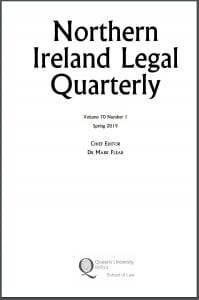UK Supreme Court clarifies when local authorities have a duty of care to protect victims from harm when carrying out their statutory functions
By Prof Paula Giliker, Professor of Comparative Law (University of Bristol Law School)
 The question of local authority liability in negligence for failing to intervene to protect vulnerable parties from harm has been discussed by the highest UK courts in recent years. Local authorities have statutory powers to intervene to assist citizens in need. When, then, should they be liable for failing to intervene to protect citizens from harm from third parties? In recent years, the Supreme Court in two cases relating to the police sought to move away from policy-based analysis (seen famously in the controversial decision in X (Minors) v Bedfordshire CC [1995] 2 A.C. 633) to one based on traditional common law approaches to omissions and precedent: see Michael v Chief Constable of South Wales [2015] UKSC 2 and Robinson v Chief Constable of West Yorkshire [2018] UKSC 4. These cases draw an important distinction between a defendant who harms the claimant and one who fails to stop a third party harming the claimant. The second situation will not generally give rise to liability unless:
The question of local authority liability in negligence for failing to intervene to protect vulnerable parties from harm has been discussed by the highest UK courts in recent years. Local authorities have statutory powers to intervene to assist citizens in need. When, then, should they be liable for failing to intervene to protect citizens from harm from third parties? In recent years, the Supreme Court in two cases relating to the police sought to move away from policy-based analysis (seen famously in the controversial decision in X (Minors) v Bedfordshire CC [1995] 2 A.C. 633) to one based on traditional common law approaches to omissions and precedent: see Michael v Chief Constable of South Wales [2015] UKSC 2 and Robinson v Chief Constable of West Yorkshire [2018] UKSC 4. These cases draw an important distinction between a defendant who harms the claimant and one who fails to stop a third party harming the claimant. The second situation will not generally give rise to liability unless:
- A relationship exists between the parties in which one party assumes responsibility for the welfare of another; or
- The authority can be said to have created the source of danger or
- The third party who has harmed the claimant was under the defendant’s supervision or control.
The latest Supreme Court decision in Poole BC v GN [2019] UKSC 25, delivered on 6 June 2019, marks an attempt by the Court to provide clearer guidance to litigants, while trying to reconcile somewhat contradictory earlier case-law. It is a rather complex decision – although given in a single judgment – and an important one. The purpose of this blog, therefore, is to explain the Court’s reasoning and give some indication of its implications for future case-law development. (more…)






 This blog is written after the
This blog is written after the 

